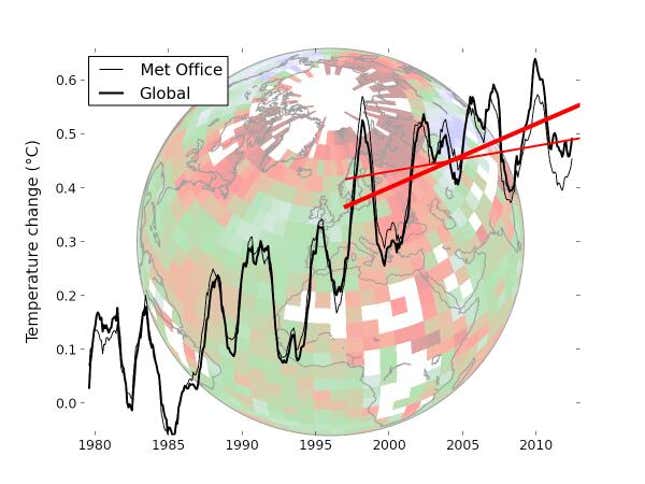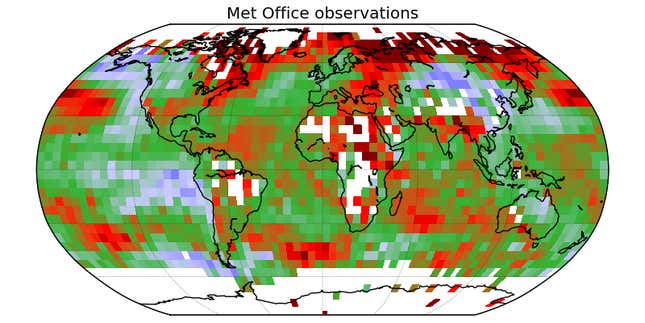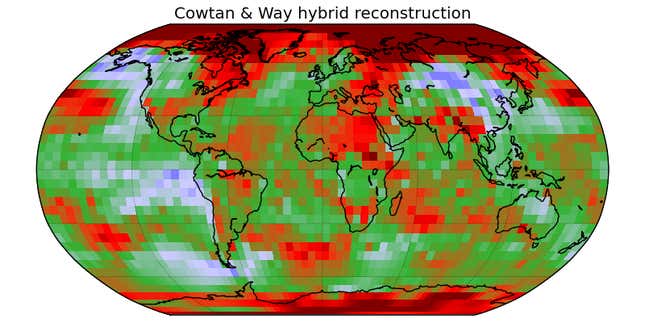
There’s an oft-repeated claim that global warming is on a 15-year hiatus—that since 1998, temperatures have risen more slowly than they were rising before. A new study throws cold—or rather warm—water on that claim.
The study, released this week in the Quarterly Journal of the Royal Meteorological Society, attempts to correct for the fact that widely cited datasets on global surface temperatures are incomplete. The data gaps exist primarily in the Arctic, where recent summers have a experienced a stark decline in sea ice. Significant data holes also exist in hard-to-reach places like the Amazon, Sub-Saharan Africa, the Middle East, Central Asia, Australia, and the Antarctic. Together, those gaps account for about 16% of the Earth’s surface.
The study fills in those gaps using information from satellites, making it the first measurement of large-scale temperature trends that covers 100% of the planet’s surface. The result more than doubles the rate of global warming since 1997, from about 0.05 °C (0.09 °F) per decade in the dataset including the gaps to about 0.12 °C (0.22 °F) per decade with the data gaps filled. That’s the same rate the UN’s Intergovernmental Panel on Climate Change reported during the period from 1951-2012 (pdf), so it effectively eliminates the recent warming “slowdown”. The result has already been well-received by the scientific community as an innovative answer to a vexing problem.
One of the authors, Kevin Cowtan of the University of York (UK), explains his methods in a video:
A big implication of the study is that previous attempts to explain the apparent “hiatus” in global warming—like enhanced heat take-up by the deep oceans, the cooling effect of smog over China and India, or natural fluctuations like El Nino—are likely still valid. Should any of those conditions flip—say, for example, China cleans up its air quality—then the temperature rise could speed up further.

